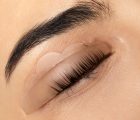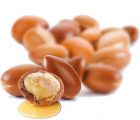 Mature skin type is fairly demanding so it requires being given an extra support and attention from us. In order to help it remain in a good condition, such skin has to be supplied with an array of vitamins and other substances that it needs to preserve its youth. Which vitamins are they and how do they affect skin? What should a good anti-age cream contain?
Mature skin type is fairly demanding so it requires being given an extra support and attention from us. In order to help it remain in a good condition, such skin has to be supplied with an array of vitamins and other substances that it needs to preserve its youth. Which vitamins are they and how do they affect skin? What should a good anti-age cream contain?
Undoubtedly, vitamins are one of the most important substances that have to be delivered to skin. However, in order to help them work as intended, you have to ‘transport’ them appropriately. In other words, you must make sure that they reach the deepest layers of skin. Luckily, the role of such carriers is fulfilled by liposomes. They are microscopic fat particles which are able to transport the entire array of vitamins through skin. Additionally, they boost processes that take place in skin. Together with vitamins, they create a very powerful anti-age set that counteracts action of free radicals. If it wasn’t for liposomes, vitamins wouldn’t have the possibility to work as profoundly as they are able to. How do vitamins take care of skin in particular?
- Vitamin A – is responsible for cell self-renewal processes, protects skin against damages and harmful action delivered by external aggressors (toxins in air, harmful solar radiation, cigarette smoke).
- Vitamin C – a very strong anti-oxidant which stimulates collagen and elasticin synthesis, it increases elasticity of capillaries, highlights discolorations and combats free radicals. Moreover, vitamin C also improves suppleness of skin influencing its condition and looks.
- Vitamin D – fixes skin lesions, improves elasticity and makes epidermis more taut, accelerates skin self-regeneration processes, displays anti-inflammatory properties and helps epidermis with exfoliating.
- Vitamin E – not without a reason this substance is called the vitamin of youth – it’s a very strong anti-oxidant that eliminates free radicals and supplies nutrients to skin cells. Furthermore, similarly to vitamin C, it reinforces walls of capillaries therefore vitamin E is perfect for treating capillary skin type. Also, this substance replenishes skin with water and increases elasticity of connective tissue.
- Vitamin B9 (folic acid) – delivers strong regenerative and anti-age action. Moreover, it protects skin against photo-ageing, makes skin more taut and combats skin dehydration.
- Vitamin K – reinforces skin blood vessels, improves skin condition and its looks. Additionally, this vitamin delivers soothing action and eliminates skin redness by lightening it up, thanks to which, complexion looks well-rested.
In the fight for youth, equally precious are minerals. Here are the most important ones:
- Magnesium – is also known as the element of energy. It stimulates skin to more efficient work and activates 300 cell enzymes and, at the same time, it takes part in cell division.
- Calcium – intensively regenerates skin and strengthens it. As a consequence, skin cells are well-connected so skin doesn’t get flabby so fast.
Other vital substances for mature skin conditioning:
- Coenzyme Q10 – it’s one of the ingredients which rejuvenating action is recognized as the strongest. It encourages cells to divide, reinforces elasticity, makes skin more firm and evens out fine lines. Moreover, coenzyme Q10 reinforces intercellular cement and delivers oxygen to cells.
- Hyaluronic acid – it’s a source of youth that improves skin suppleness and elasticity. Furthermore, hyaluronic acid binds water molecules thanks to which skin stops aging and fine lines develop significantly slower. Basically, this substance is one of the most important rejuvenating substances.
- Phytohormones – are vegetable hormones which play in tune with human skin, stimulates cell division, they prevent skin from ageing and getting flabby. What’s more, phytohormones facilitate skin regeneration and combat cell membrane damages.
- Vegetable stem cells – they are recognized as a revelation in the field of anti-age care. They differ from ‘usual’ cells due to their ability to carry out limitless number of division. In other words, they continuously undergo self-renewal processes and, additionally, regenerate damaged cells
- EFA (Essential Fatty Acids) – the most important for proper human body functioning. They maintain all processes that take place in skin cells, eliminate free radicals and improve skin condition. Furthermore, EFA slow down skin ageing processes and boost its elasticity.





Leave a Reply